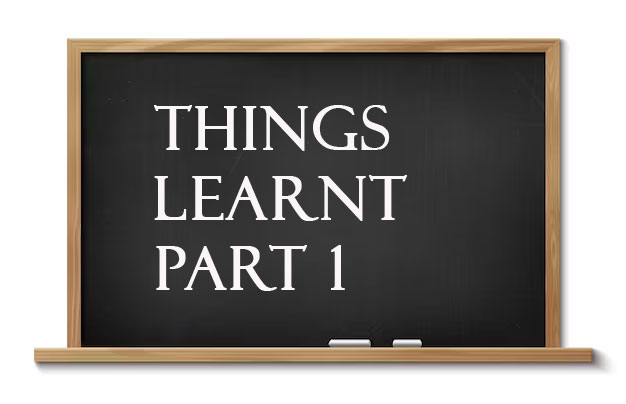
This an excerpt from a 2-part session I have with the students I mentor. It comes much from painful lessons learned versus success achieved. I’ve added some commentary for context and in this form, it’s probably 4 – 5 parts. And yes, I recognize that some of this is extreme. When I present it, it is intended to be a watch-your-*ss statement. When later asked about the most valuable thing they got from my mentorship, ahead of everything else including industry introductions, this is usually it.
DO THE HARD THING EVERY DAY.
- Know what it is at the beginning of the Work Day.
- Do it first. Do it most importantly ahead of anything else.
- Know the must-have/must-do in your day.
- What you need to have completed to have an A-Day.
Depending on what I was doing in my career at the time, it was usually definable as the thing I was trying to avoid.
- In technical sales, it was cold calling. Even though I knew a measure of it was critical to success and that having it on a regular schedule made it easier, it was tough to make that first call in the morning.
- As the CFO of a start-up it was proactively calling suppliers and service providers to tell them we were going to be late with the payment…again. And yet, by making this call, taking the initiative and not waiting for their call is what probably kept the lights on long enough to pay them.
- Telling the Board, the Boss, the Investors, that we weren’t going to make our numbers. In whatever role, delivering the bad news early is critical, without sugar-coating or over-the-top promises of better, future performance.
TO FINISH, YOU HAVE TO START
This is a direct corollary to ‘do the hard thing…’. I keep this one on a pad on my desk. Simple guidance that helps me avoid procrastination.
ASSUMPTIONS ARE THE BANE OF OPPORTUNITY
- You must have accurate information, good or bad.
- You must operate from FACTS, no impressions, not guesses, not assumptions. (Not even intuition!)
- This comes from asking direct questions, without apology.
- This comes from asking the HARD QUESTIONS beginning at the beginning and through the process.
There are probably a dozen or more major corollaries to this one. I tell the students to risk being very annoying by continuing to ask questions and question anything not backed up or supported by credible information. I also make sure they recognize that optimism bias is a key contributor to the damage that assumptions can cause.
MANAGE EXPECTATIONS
If there is a rule that even seasoned veterans violate, this is it! It is maybe the most important thing I counsel to people beginning their careers but it comes up regardless of what stage they’re at. Note that much of my guidance is based on deal-flow so it’s fairly obvious where not doing this has had the greatest impact!
• Under promise. Give yourself a significant margin of delay, error, underperformance, failure.
- Under promise. Give yourself a significant margin of delay, error, underperformance, failure.
- Cut at least 25% off the value of any deal.
- Don’t discuss deals in progress unless you really need advice. People will attach to their promise, use it to your disadvantage. Otherwise keep them to yourself except as FYI-LIMITED.
- Don’t telegraph your blows. (Thanks to DH for this one early in my career!)
- Communicate to the Major Stakeholders FREQUENTLY, CONSERVATIVELY, CONSCISELY.
- Make sure you get the hard stuff across. Know the Major Points ahead of time and make sure you communicate them clearly.
- Do not make proceses or guarantees unless you absolutely ABSOLUTELY ABSOLUTELY have to. No matter how much you qualify it, people will only remember the most extreme promise/possibility/potential. They will hold you to it and they will hang you on it. This one in particular, one of the harshest lessons in the business.
Part-2 in a few weeks.
Mark Logomasini, MBA, PMP
Managing Partner

